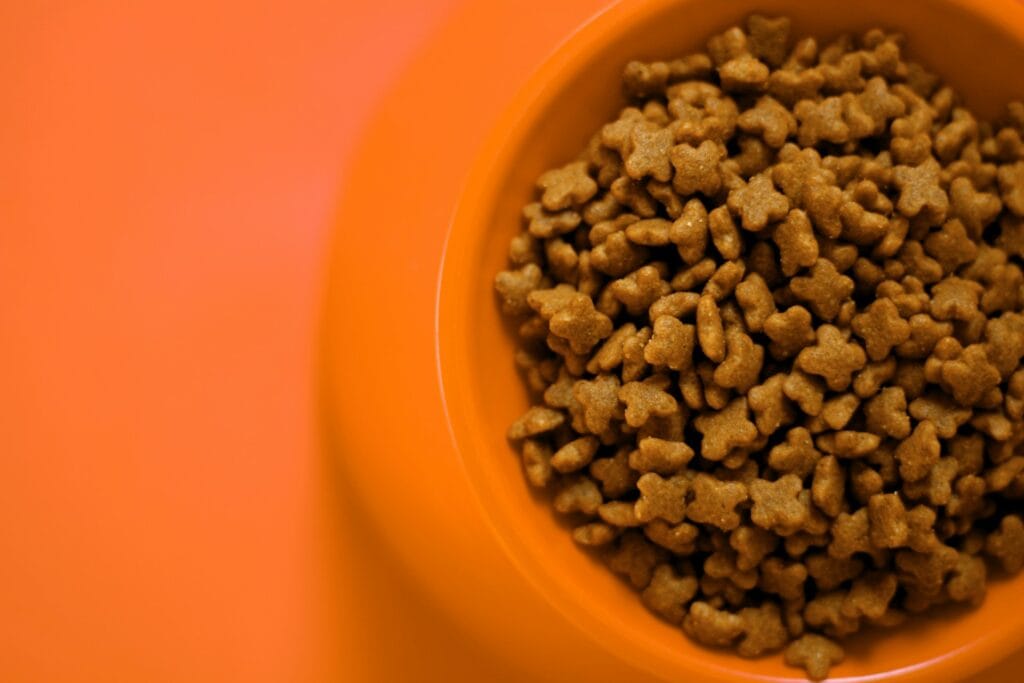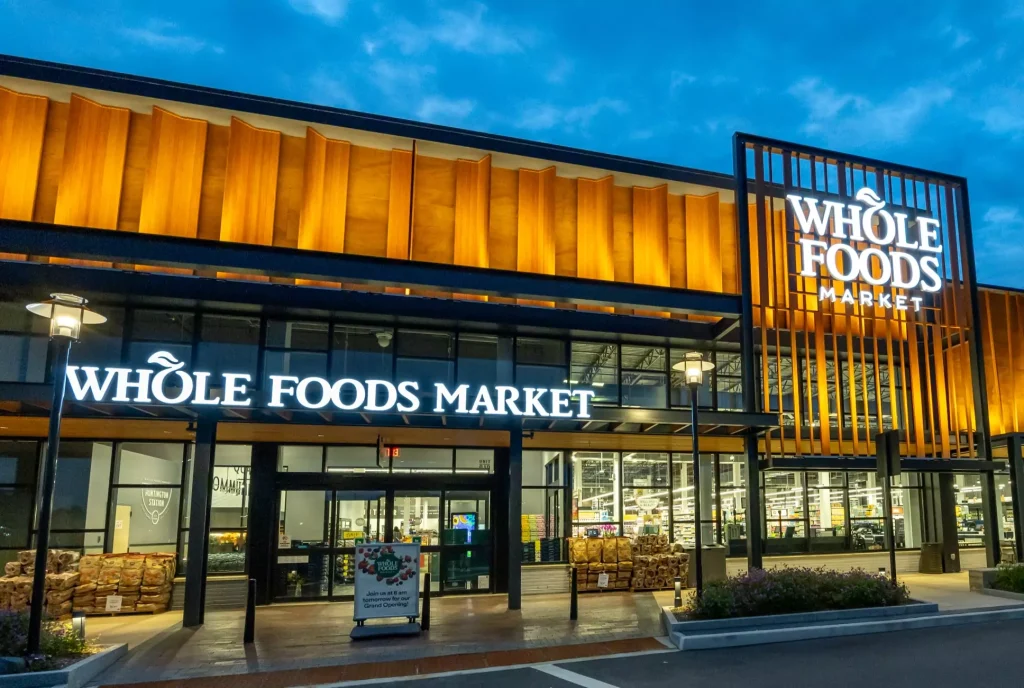Check how old is your pet in human years using our Pet Age Calculator.
As a devoted dog owner, I know how important it is to provide my furry friend with the best nutrition possible. With so many options on the market, it can be overwhelming to choose the right dog-friendly pet food that meets both their needs and my standards.
I’ve spent countless hours researching ingredients, reading labels, and exploring brands that prioritize quality and health.
Table Of Contents
What Is Dog Friendly Pet Food?
Dog friendly pet food consists of nutritionally balanced meals specifically formulated for canine health. This type of food prioritizes high-quality ingredients, including proteins, carbohydrates, and fats. Ingredients like real meat, whole grains, and vegetables support a dog’s overall well-being.
I focus on reading labels to identify dog friendly options. Key attributes to look for include:
- High protein content: Essential for muscle health and energy.
- Essential fatty acids: Important for skin and coat health.
- Digestible carbohydrates: Provide energy and aid digestion.
- Vitamins and minerals: Support various bodily functions.
Manufacturers often use natural ingredients, avoiding fillers, artificial flavors, and preservatives. Choosing dog friendly brands ensures my pet receives the best nutrients while enjoying their meals. The right selection contributes to better digestion, a healthy coat, and increased energy levels.
Benefits of Dog Friendly Pet Food
Dog friendly pet food offers numerous advantages for overall canine health, specifically in the areas of nutrition and digestion. I focus on two primary benefits that make these diets worth considering.
Improved Health and Nutrition
Dog friendly diets, such as raw and home-prepared meals, manage food allergies effectively while promoting healthy body condition without obesity. These diets often consist of high protein and low carbohydrate ingredients, helping maintain proper portion control.
Limited ingredient options reduce allergic reactions like vomiting, diarrhea, and skin issues. Avoiding synthetic additives enhances overall well-being and longevity.
Fresh, natural diets rich in whole ingredients provide essential antioxidants, vitamins, and minerals that boost brain health and cognitive function, particularly in senior dogs.
Younger dogs also experience improved alertness and learning abilities. Whole food ingredients generally offer higher nutrient concentrations compared to processed components, leading to better nutrient availability and enhanced health outcomes.
Enhanced Digestive Health
The gut microbiota significantly impacts a dog’s immune system and overall health. Diets containing high-quality proteins and suitable protein levels promote beneficial gut microbiota while reducing harmful fermentation that may cause toxins and bowel diseases.
Whole grains and fibrous ingredients supply dietary fiber and phytonutrients essential for digestive health, although more research in this area is warranted.
Fresh food diets contribute to consistent, smaller, and less odorous bowel movements, indicating improved digestive function.
Additionally, supplements like hulled hemp seeds in homemade diets enhance protein digestibility and promote gut microbial diversity, further supporting digestive health.
Dog friendly pet foods, prioritizing natural and high-quality ingredients, foster nutrition and immune support while enhancing digestive health, creating a balanced diet for optimal canine wellness.
Popular Ingredients in Dog Friendly Pet Food
I focus on key ingredients that ensure balanced nutrition and promote my dog’s health. Several popular components contribute to a wholesome diet for canines.
Whole Grains
Whole grains play a vital role in dog food. Ingredients like wheat, rice, and oats deliver essential vitamins, minerals, and dietary fiber. Research from Tufts University highlights that whole grains contribute significantly to gastrointestinal health and aid in regulating fat and calorie intake.
Whole grains also help maintain energy levels and support digestive function, moving away from the misconception of being mere fillers. Incorporating whole grains into my dog’s diet fosters overall health while satisfying their nutritional requirements.
Fresh Fruits and Vegetables
Fresh fruits and vegetables enhance the nutrient profile of dog foods. These ingredients provide vital vitamins, antioxidants, and fiber, promoting overall wellness.
Vegetables such as carrots, peas, and sweet potatoes, along with fruits like blueberries and apples (in safe amounts), emphasize a whole food approach.
This method values minimally processed foods, preserving their nutrient content. By including fresh produce, I help boost my dog’s immune system and improve palatability, ensuring they enjoy their meals while benefiting from essential nutrients.
How to Choose the Right Dog Friendly Pet Food
Selecting the right dog friendly pet food involves several key considerations. Prioritizing your dog’s specific needs ensures optimal nutrition and health.
Consider Your Dog’s Age and Size
I focus on my dog’s age and size since these factors directly impact their nutritional requirements. Puppies, for example, require food rich in protein and DHA to support their growth and brain development.
Adult dogs thrive on balanced nutrition that maintains overall health. Senior dogs often need food higher in protein for muscle maintenance and enriched with antioxidants to boost immune function.
Adjusting the food type according to these life stages guarantees my dog receives the essential nutrients for their specific needs.
Look for Quality Certifications
I always check for quality certifications on pet food labels, especially the AAFCO (Association of American Feed Control Officials) nutritional adequacy statement.
This statement indicates that the food has been tested and deemed “complete and balanced” for my dog’s life stage, whether it’s for growth, adult maintenance, or all life stages.
Choosing food with such certifications gives me confidence in the nutritional value and safety of the pet food I select for my dog.
Key Takeaways
- Definition of Dog Friendly Pet Food: Look for nutritionally balanced meals formulated for canine health, focusing on high-quality ingredients like real meat, whole grains, and vegetables.
- Key Nutritional Attributes: Prioritize high protein content, essential fatty acids, digestible carbohydrates, and a variety of vitamins and minerals for overall well-being.
- Health Benefits: Dog friendly diets can improve nutrition, manage food allergies, and promote healthy body conditions while enhancing cognitive function in both senior and younger dogs.
- Enhanced Digestive Health: High-quality proteins and whole grains support a healthy gut microbiota, improve digestion, and lead to better bowel health.
- Ingredients to Consider: Whole grains, fresh fruits, and vegetables play a vital role in providing essential nutrients while supporting gastrointestinal health and overall wellness.
- Choosing the Right Food: Consider your dog’s age and size, and look for quality certifications like AAFCO to ensure the food meets the necessary nutritional standards for your pet.
Conclusion
Finding the right dog friendly pet food is a journey that requires careful consideration and dedication. I’ve learned that prioritizing high-quality ingredients and nutritional balance can significantly impact my dog’s health and happiness.
By focusing on what truly benefits my furry friend I can ensure they thrive and enjoy their meals.
As I continue to explore different brands and formulations I’m committed to making informed choices that cater to my dog’s unique needs.
With the right nutrition I can support their overall well-being and enhance their quality of life. Investing time in selecting the best food is one of the most rewarding decisions I can make as a pet owner.
Frequently Asked Questions
What is dog friendly pet food?
Dog friendly pet food refers to nutritionally balanced meals specifically designed for canine health. It prioritizes high-quality ingredients like proteins, carbohydrates, and fats, ensuring dogs get optimal nutrition while enjoying their meals. This food avoids fillers and artificial additives to promote better digestion and overall well-being.
Why is high protein content important in dog food?
High protein content is crucial for dogs as it supports muscle development, energy levels, and overall health. It is especially important for puppies that are growing and need strong muscles, as well as senior dogs who require quality protein to maintain vitality and body condition.
How can dog food affect my dog’s digestive health?
High-quality dog food, rich in digestible ingredients, can significantly improve your dog’s digestive health. The right diet promotes beneficial gut microbiota, reduces allergic reactions, and enhances nutrient absorption. This ultimately leads to better digestion, healthier coats, and increased energy levels.
What are some popular ingredients in dog friendly pet food?
Popular ingredients in dog friendly pet food include whole grains like rice and oats, fresh fruits, and vegetables. These ingredients not only provide essential vitamins and antioxidants but also promote gastrointestinal health and energy maintenance, counteracting misconceptions about their nutritional value.
How do I choose the right dog food for my pet?
When selecting dog food, consider your dog’s age, size, and specific health needs. Puppies require protein-rich food for growth, while adults need balanced nutrition. Senior dogs benefit from higher protein and antioxidant-enriched diets. Look for quality certifications, such as the AAFCO statement, to ensure nutritional adequacy.





